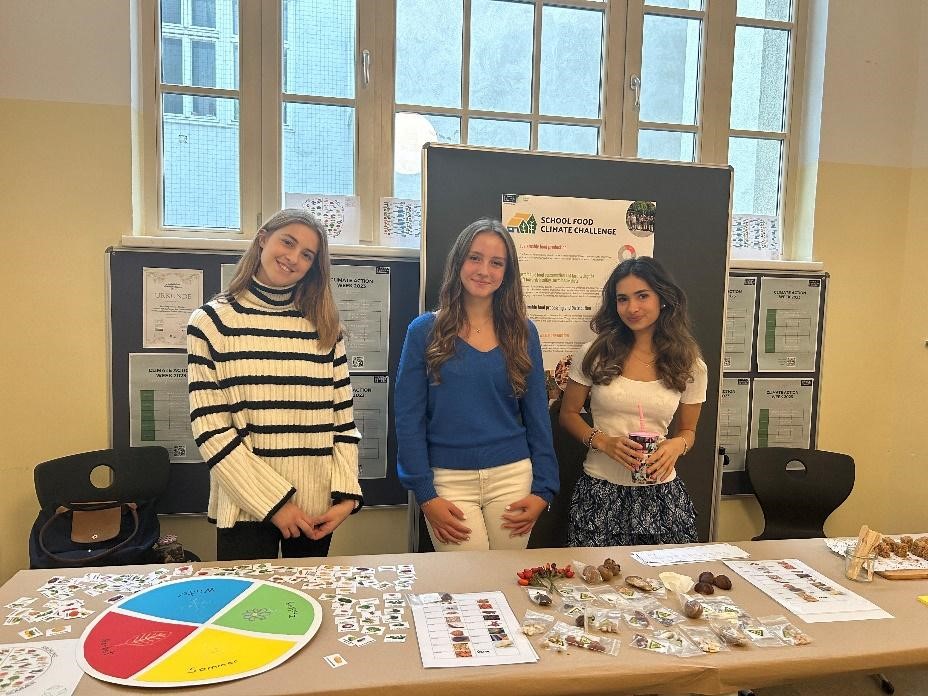
Contents
Learning Outcome Time required Tools or equipment required Summary of the activity What to do Tips how to implement the topic to school curriculumLearning Outcome
In this educational initiative, students take the lead in imparting knowledge to their peers through the "Farm to Fork" project.
The primary focus is on in-depth exploration of the EU Farm to fork strategy within upper school classes, with the acquired knowledge being disseminated to younger students.
The project aims to foster awareness of sustainable food production goals and waste reduction. Participants are tasked with addressing long-term food supply objectives and devising independent methods for knowledge transfer.
Time required
Upper school classes typically possess a foundational understanding of the subject; however, collaborative work on comprehending the Farm to Fork principle is essential.
The project involves 2 x 2 hours of weekly preparation, along with a minimum of 2 hours of individual study time. In total, a minimum of 6 teaching units are recommended, culminating in a realization session, such as a dedicated morning.
Tools or equipment required
The necessary materials vary based on the students' age or the targeted group. Laptops for research purposes and crafting materials for project realization should be provided.
Summary of the activity
The "Farm to Fork" educational project engages students in a collaborative learning experience where upper school classes delve into the intricacies of sustainable food production and waste reduction.
Through a structured approach, students explore the EU's Farm to Fork principle, comparing organic and conventional farming, investigating food transport, sales, and energy consumption, and discussing food consumption and waste. The acquired knowledge is then imparted to younger students through interactive sessions, where the upper school participants create educational materials, games, and presentations.
The project aims to instill awareness of long-term food supply goals and empower students to independently develop methods for knowledge transfer. With a flexible timeline, the initiative can be realized in diverse settings, including taster days, collaborative projects with other schools, or participation in education fairs, fostering a holistic understanding of the Farm to Fork concept among students of varying ages.
What to do
Step 1: Definition of Framework
Establish the context in which students can present the topic to other children, be it during a taster day, an open day, or a visit to another class.
Step 2: Understanding the Farm to Fork Principle
Students learn about the EU's Farm to Fork principle incrementally, discussing it in groups. Topics include organic farming versus conventional farming, food transport and sales, energy consumption in the supply chain, food consumption, and food waste.
Step 3: Research and Creation of Educational Materials
The class is tasked with creating work materials, games, worksheets, or presentations on the Farm to Fork topic. Providing seasonal fruits, seeds, or plants is recommended for hands-on engagement. Examples from a previous event include seed-to-fruit/plant matching, identifying vegetables in a cake, and associating fruits with different seasons.
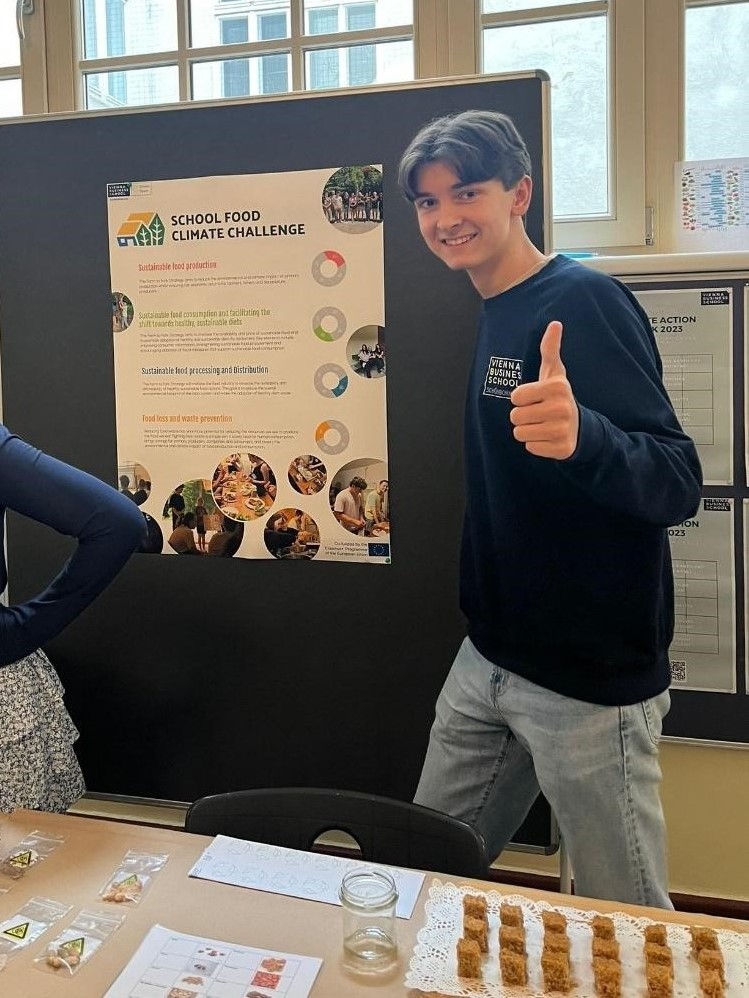
Assign seeds to fruits or plants
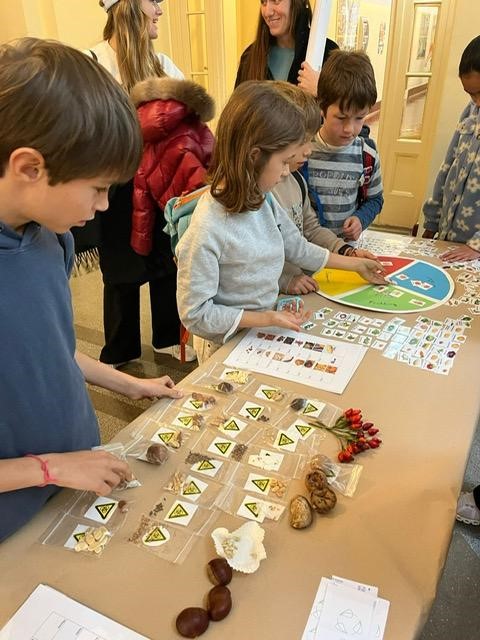
Guess the vegetables in the cake
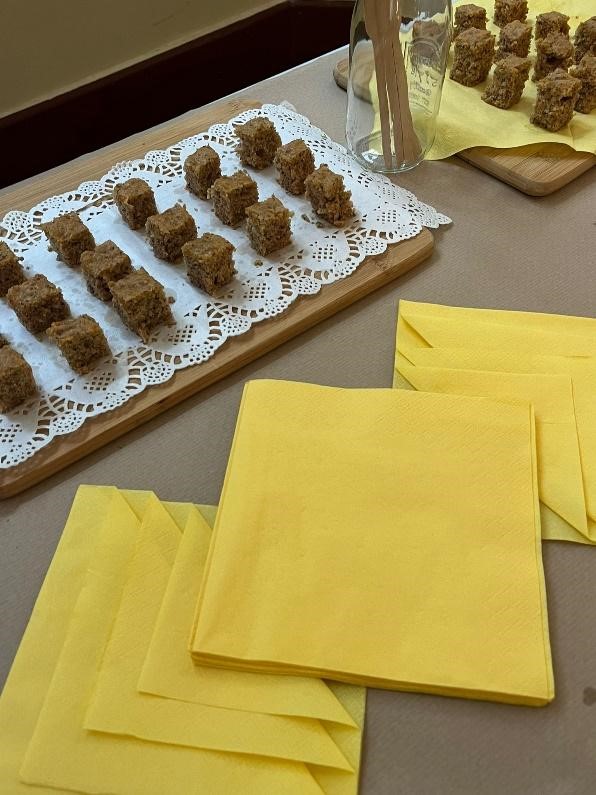
Allocate fruit to the different seasons
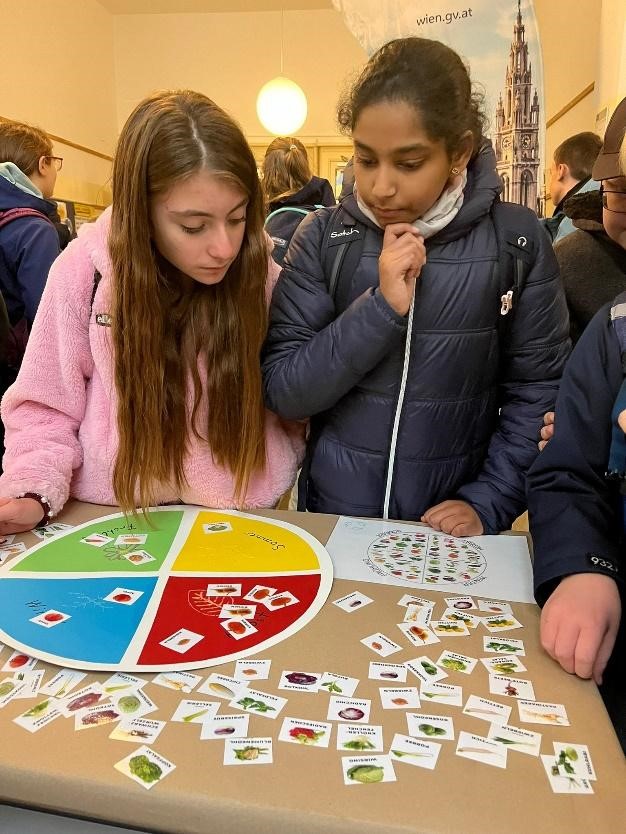
Tips how to implement the topic to school curriculum
Due to the topic's complexity, it is relevant across multiple subjects in the curriculum:
The Farm to Fork principle encompasses
- food production (biology, geography, and business administration)
- transport and processing (geography, business administration, logistics, and commodity science)
- consumption (biology, nutrition), as well as utilization and composting (biology, ecology).
